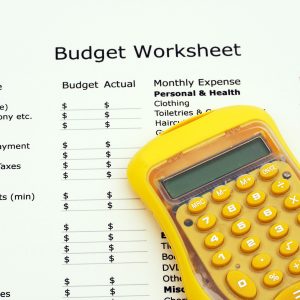Money is something that everyone wants and needs. At the same time, it’s something that a lot of people don’t understand.
A lot of people, in fact, take money for granted—and if they don’t, it’s a matter of not understanding how to manage it. For women, especially, this balancing act of understanding and not understanding money is something that haunts us throughout our daily lives.
Is it possible to… manage money?
A lot of people, particularly women, are balancing their money enough ‘just to survive.’ We think about having enough to pay for the bills, enough to manage our households (whether we’re single or not) and just barely having enough to ourselves.
We haven’t actually thought about the logic or common sense behind managing money while committing to this ‘balancing act.’ We don’t think about the logic since, well, most of us just don’t know much about money management.
It’s true that a lot of us don’t learn money management from a book—it’s strictly a hands-on life skill. Even though we start out learning about money through trial and error, it doesn’t mean we actually can’t start learning the basics now.
Money management basics simply let us learn more about how to manage and eventually earn more money. If we know more about the basics, we can start making more logical decisions about how to handle our money in real life.
The basics of money management – approaching them with logic in mind
Have you ever wondered about what exactly the basics of money management are? The basics of money management are a common hot topic among many financial experts, in addition to people who want to help others manage their finances better.

Budgeting, in fact, is perhaps the bread and butter of money management—to the point that it’s the go-to topic that a lot of experts talk about. The thing is – do a lot of readers actually understand what it means to use a budget?
If you’re just barely making your bills each month, as an example, think about what you actually buy each month. If you’re buying things considered extraneous when compared to important matters (bills, food, living expenses), you’re probably spending more than you need.
Budgets involve balancing a certain amount of funds against the things that use those same funds. So, if you have to put $50 per month toward a credit card bill, you have to have that $50 for that bill each month.
That $50 is your budget for that particular bill. If it’s a part of a $200 monthly credit expense budget, it’s only one part of that budget that you have to maintain, in order to get those bills paid on time.
Another topic that goes hand in hand with budgeting is planning. Without planning, you can’t exactly budget. Even if you have a budget, it’s incredibly easy to get distracted and spend more than you should spend. That’s why it’s important to always have a plan for everything.
Planning can take shape using only a piece of paper and a pen, using money management software or a combination of both. Think of it this way: plans are your road map, budgets are the places you’re visiting—and your actions define how you’re going to get there.
If you take a detour, you won’t reach any of those end destinations—or rather, successfully manage your money.